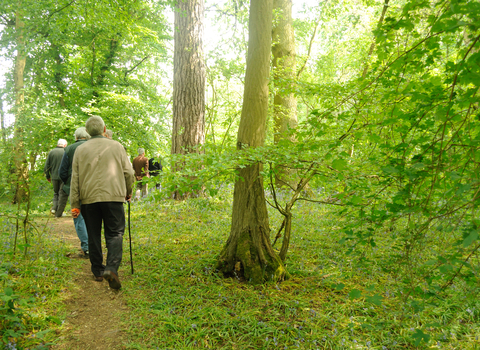We are in a climate and nature emergency, and the two are inextricably linked. Climate change is driving nature’s decline, and the loss of wildlife and wild places leaves us ill-equipped to reduce carbon emissions and adapt to these changes. One crisis cannot be solved without the other.
The UK has a legal target of Net Zero greenhouse gas emissions by 2050. Nature can make a massive contribution to achieving this, or an even more ambitious target — but only if our damaged ecosystems are restored. Climate change is impacting wildlife in the UK now, and we need a much more ambitious strategy to help nature adapt and give wildlife room to move.
To tackle the climate emergency, we’re calling on all political parties to...

Climate march Nottingham by Leanne Manchester
Help nature and people adapt to climate change
The next UK Government must measure progress on adaptation at the same time as progress on reducing carbon emissions. Adapting to climate change must be integrated across all UK Government policies. Ignoring this will put our natural carbon stores – such as peatlands and woodlands – at risk of extreme heat, fire, and drought, which will lead to massive releases of more carbon into the atmosphere. Habitats need to be connected together to make it easier for wildlife to move, and we need to transform land use and undertake widespread restoration in some areas, such as the Fens, to give them a chance of withstanding climate change impacts.

© Paul Naylor
Protect our Blue Carbon
The marine environment has a huge role to play in locking up and storing carbon. Destroying these ‘Blue Carbon’ sources will worsen climate change even further and could make Net Zero unachievable. It is essential that these important stores of Blue Carbon are recognised, monitored, and protected from damaging development and activities.

Amy Lewis
Upgrade energy efficiency for homes
The greenest energy is the energy we don’t use. To reduce emissions, costs, and energy bills, the next UK Government must help homes upgrade their energy efficiency urgently, by rapidly expanding home retrofit schemes to bring the entire UK housing stock to a good level of efficiency by 2030. Without serious action, heating and cooling is likely to stay unaffordable for millions of people while energy is wasted – leading to poor outcomes for people’s health and for our environment.





